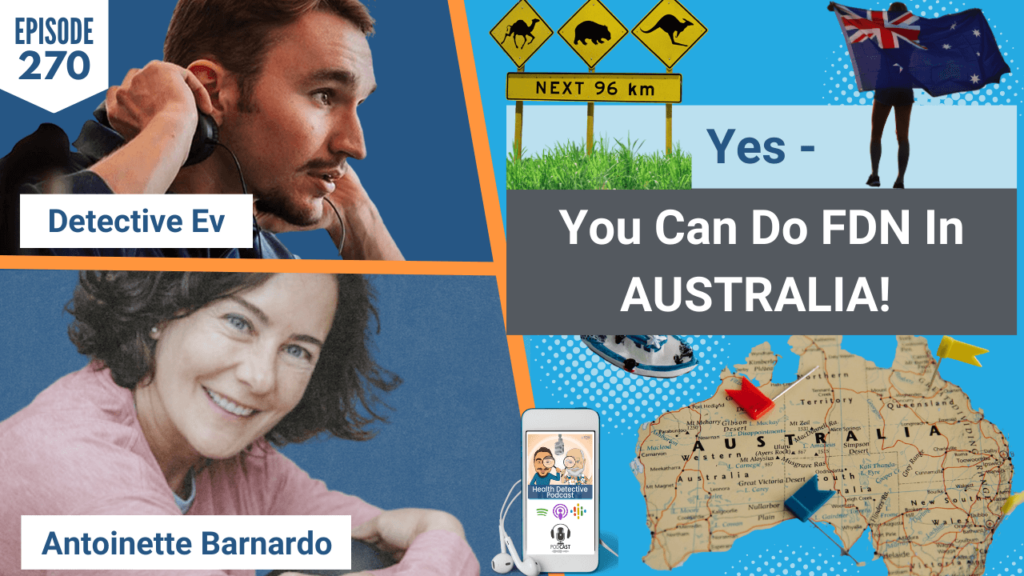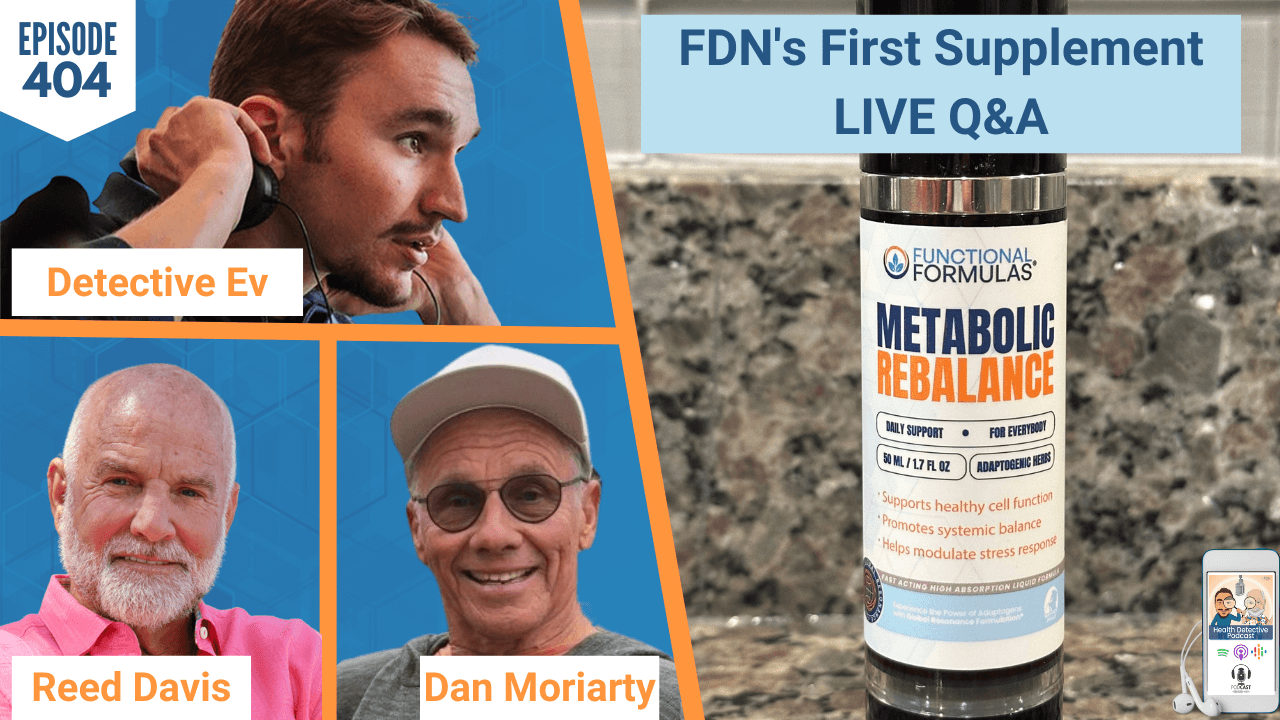Introduction
[00:00:00] Detective Ev: Hello everyone. We’re actually doing this live about FDN in Australia, and we got some crazy time zone differences. I am on the lucky side of this today, coming at you from a nice, sunny, 4: 30 pm. Antoinette, what are we rocking in your time zone?
[00:00:12] Antoinette Barnardo: We are in Australia, eastern standard time. It’s 6:30 am, also beautiful, also sunny. So, nothing to complain about, Evan.
[00:00:21] Detective Ev: Not the worst in the world, apparently. Our friend Antoinette here actually starts almost two hours earlier for us some days. So, this is dedication, and we’ll talk about exactly what it is that she starts in just a second.
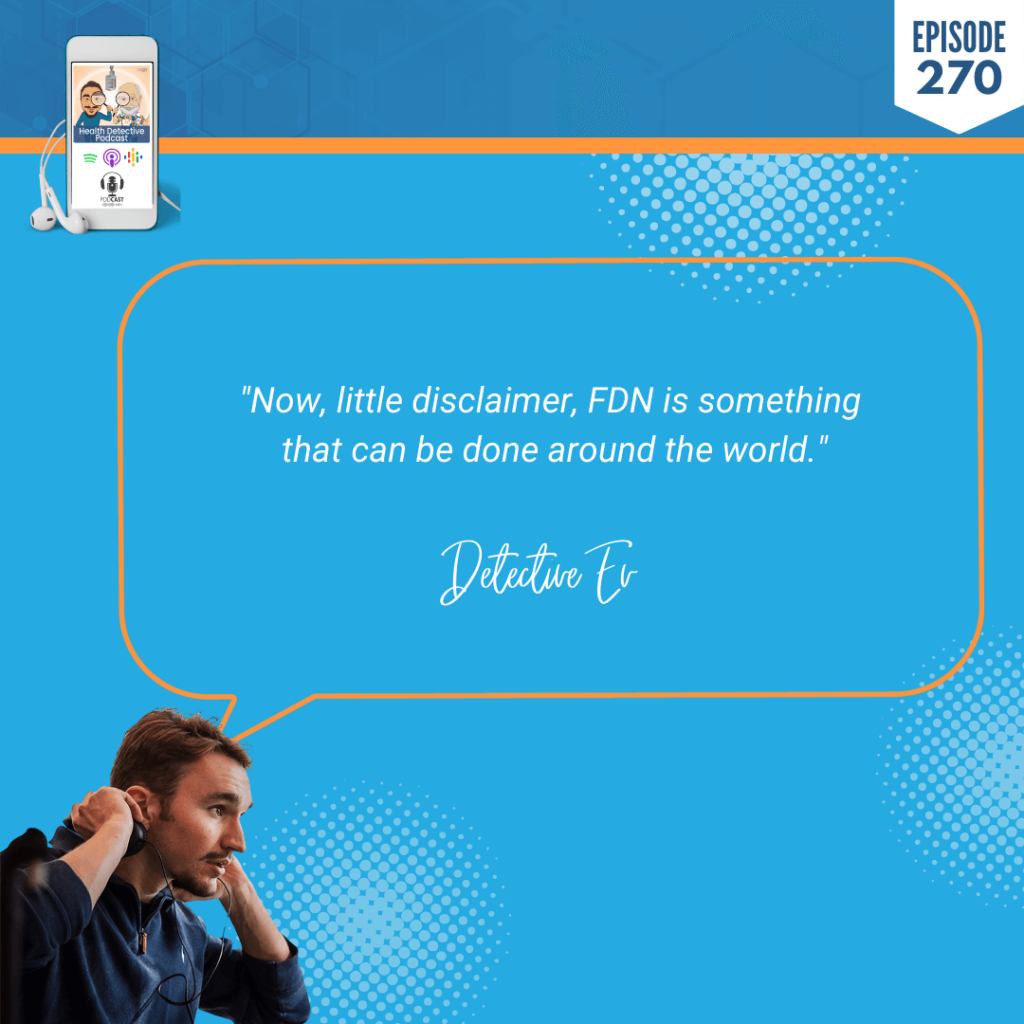
[00:00:31] Detective Ev: But this is something we’re excited for. We’re actually talking about how we can do FDN in Australia. Now, little disclaimer, FDN is something that can be done around the world. We have practitioners that have graduated in over 50 countries now. So, I think the question of how is something that, yes, you can answer specifically country by country, but really, it’s an overall question that answers it the same way for most countries.
But there are specifics that we’ll get into today especially with supplements and those types of things. We’ll make sure we dot the I’s and cross the T’s. But Antoinette, one thing I wanted to start with today is I know that we’ve never gotten to talk to you live before.
FDN in Australia: Overscheduled and Stressed
I only got to meet you for the first time yesterday, like actually meet you. So, I’d love to know a little bit about you and how you got into this work. I’m going to guess that perhaps there are some personal health challenges that went on. I could be wrong. You might be one out of a hundred that that doesn’t apply to, but most likely that’s been the case for you. So, tell us about yourself. When did the symptoms start for you and what did they look like?
[00:01:40] Antoinette Barnardo: They were quite severe. I had a very busy life; I was a CEO of a small company, started my journey way back when in nutrition science, and pivoted into a couple of areas like skin care, supplements, et cetera. Long story short, CEO of a small company, I started being quite busy, overscheduled, I think like most people are when they run businesses and small businesses and startups and all those kinds of things, compounded with some loss in one’s life.
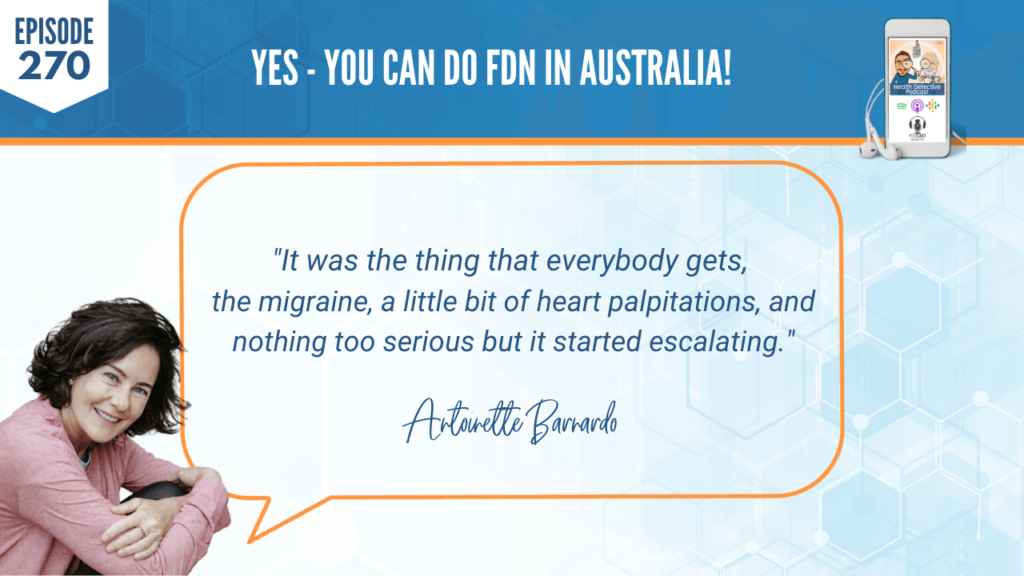
I was going to say, I don’t think there’s anybody that comes to FDN probably that doesn’t have a history of something in health. And my health started really deteriorating during that time. I just couldn’t prioritize self-care. So many people in the business and the corporate world, things were coming at me from all angles. I started developing symptoms first. It was the thing that everybody gets, the migraine, a little bit of heart palpitations, and nothing too serious but it started escalating.
FDN in Australia: Not Okay
To really make the story without dragging it out, I developed celiac disease. As everyone knows that’s where a lot of stress, a lot of cortisol production can affect the gut and our health. That escalates into food sensitivities and intolerances. And I started developing fairly severe symptoms, symptoms that made me feel very unwell, that made me miserable, very miserable.
We know, of course, everything that goes on in the gut, happens in the brain too, with concentration issues, and that started escalating. And I, like everybody else, I think I experimented. I throw some things and tools at the problem, sometimes the whole kitchen sink. Sometimes something sticks, but never for very long. And before I knew it, I was in a world of pain, very miserable and didn’t really want to get out of bed.
That led me to start digging a little bit more into how I can actually diagnose myself and what tools can I use. I started digging around and of course I finally stumbled onto FDN and did a little bit more digging and looked at exactly what FDN does and what FDNs do. And I was really interested.

I was interested in the methodology because on the one hand they’ve got this amazing thing called testing. So, we don’t guess, as we say in FDN, we test. All my lights kind of came on. I thought that’s a good way of really understanding what’s going on with me and why I’m feeling so poor. Because I did what everybody else would do. They go off to the doctor, get a whole bunch of tests. No, you’re okay. Your markers all look okay. And I knew I wasn’t feeling okay.
FDN in Australia: FDN Mentor
So, I scheduled a couple of calls with people who had been through FDN. Of course, they all had the same things to say, amazing curriculum, fantastic learning. And you have this ability then by the time you come through the curriculum you can test yourself, test your family members, test clients, build a practice. I started going down that avenue, and before long, I signed up, went through the course, really loved the course.
As I’m in Australia, I don’t get to interact with people live every other day. But I think FDN makes it really easy for people that are remote because they can listen to replays, they can tap into all the information. So, I did the course, graduated the course, loved it so much that I started using it in my own life with my own clients.
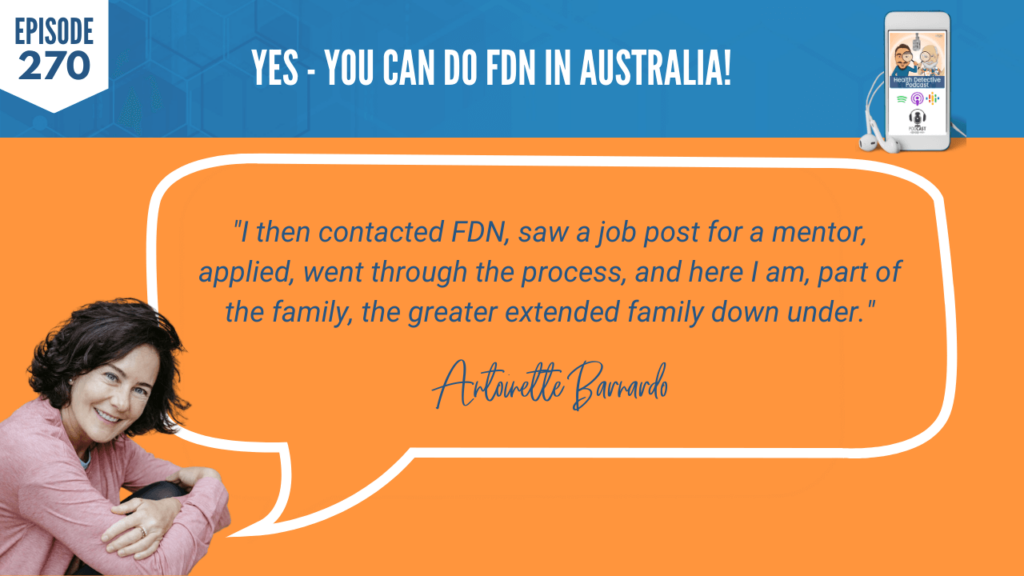
I then contacted FDN, saw a job post for a mentor, applied, went through the process, and here I am, part of the family, the greater extended family down under.
[00:05:44] Detective Ev: This is a classic story for a lot of the people who work here, right? We go through the program and now they can’t get rid of us. We loved it so much that they’re stuck with us now and we’re even working here.
But it is really cool. The majority of the people that work for FDN still to this day, and I say it that way because it’s a fairly large company now. It’s growing rapidly. We do have independent contractors and stuff like that, but the majority are still FDNs. So, it’s people who have actually done this.
FDN in Australia: Celiac Informed
And it’s so cool when it comes full circle in that way of you got no idea what’s going on for a while, get the diagnoses, got to figure this out, and it becomes such a part of your life that now you’re actually mentoring others helping them get through the course. We’re very thankful for that because that’s a huge need that we had to have filled in Australia.
It’s amazing even when I’m on the calls with people now who are calling us from over there. I just had a gentleman the other day, sign up. He lived in St. Kilda and then he was currently in Bali. So, shout out to Timothy if he happens to be watching today. It was just nice to be able to say to him, yeah, we have that support necessary for you because he was worried about the time zone things with mentors. I’m like I think you’ll be good. Our poor mentor Antoinette is not, but you definitely will be on the good side of this.
Not that we want to spend the whole time dissecting the story, but I got to ask a couple of things again, my podcast hat is coming on now. Did you identify through Western medicine that you had celiac or was that something you realized down the road? How did you actually figure out that you had that condition? Because that can be very tricky to diagnose in the States.

[00:07:13] Antoinette Barnardo: And it’s tricky in Australia too. Of course, you first do what you can with what the knowledge that you have. I became quite established in my knowledge around what celiac is, what causes it, how one comes to have celiac.
FDN in Australia: Stress-Load
And then absolutely the diagnosis in Australia is still that you, unfortunately, have to consume gluten for a six-week period in order for them to do a test, which the gold standard is still a biopsy. Of course, they cleave a part of the gut. Sometimes they cleave off a really healthy part. So, diagnosis isn’t foolproof.
And then you have something to work with, something that says you now have a Western medicine diagnosis. That doesn’t really help you in terms of how you manage the disease, because the only message you get is, well, don’t eat gluten. As we know, there’s just so much more to the etiology of these diseases, to the fact that most of them are actually caused by severe stress, which is the cornerstone of the work that we do at FDN.
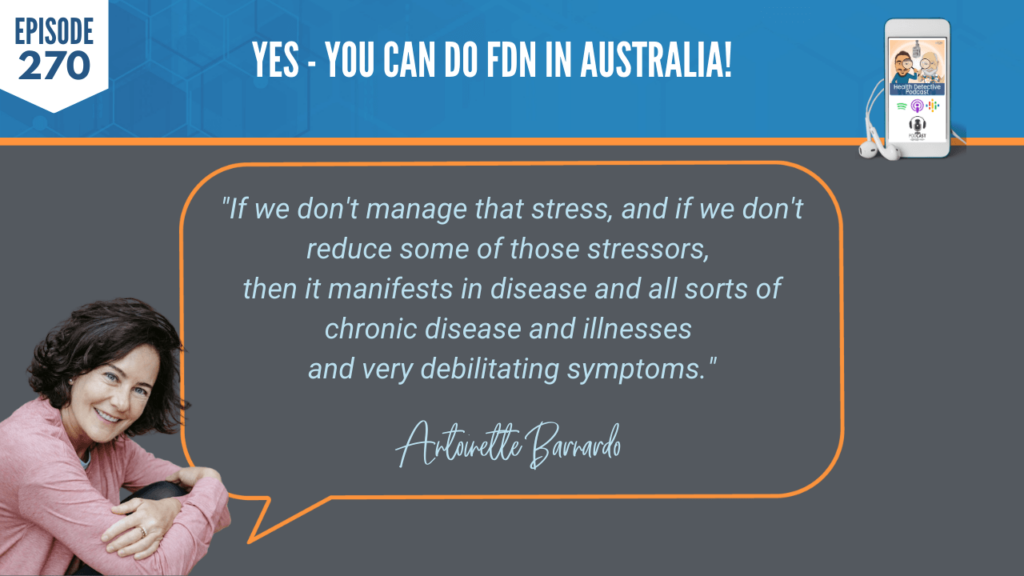
It’s the fact that we all have got so much stress coming in on a daily basis from every angle, and we don’t know what to do with it. If we don’t manage that stress, and if we don’t reduce some of those stressors, then it manifests in disease and all sorts of chronic disease and illnesses and very debilitating symptoms.
[00:08:42] Detective Ev: Got it.
I’m sorry, obviously, it happened to you, but man, we’re glad it happened in a similar way because now you’re able to do this and it’s a voice for other people. I saw a lot of individuals, once I got into this space, who have been through this ringer with not only autoimmunity, but specifically celiac.
FDN in Australia: Doing FDN
One friend, I won’t mention her name, was someone that I knew in high school, met up with her afterwards. Actually, we’re just two freaking nerds, man. We met up, not to go on a date like normal 20-year-old males and females would do, but to actually talk about her celiac diagnosis. That was what we chose to do that day.
She was talking about how it was diagnosed as mental health issues first, all these different things. Anything but celiac disease is what came first. So, it’s very real thing for people. And thank you for sharing that.
I see that we actually have a good amount of people tuning in live and there’s a very specific title on this one today where it’s called practicing FDN in Australia. I can’t imagine you’re just live with us to hang out. So, if you have questions about Australia, you guys are more than welcome to ask. We’re about to actually dive into that right now.
The first question that always comes up, this is very common on the calls and it’s common no matter where the person’s from, whether it’s America, Canada, the UK, Australia. Everyone always asks, how are we able to do FDN? What they’re referring to is they have this perception that somehow, we are the ones running lab tests or even just ordering them, like Evan Transue’s ordering the lab.

So, I think there’s a huge misconception about how we work here. And as a mentor, you’re probably a great person that’s equipped to explain this. How do we do FDN? How is this legal? It is fully legal; I promise you guys. We’ve got a lot of people doing this with success. How do we do it?
FDN in Australia: Scope of Practice
[00:10:20] Antoinette Barnardo: Great question. Thanks, Evan.
First, before I answer that, shout out to Timothy, because I was in Bali when I was doing some of my practicals and my exams with FDN. So, FDN is possible wherever you are.
First of all, find us, find FDN. And once you found us, then you sign up for the course, you go through the curriculum. The thing to remember is that we have a magic pill, a magic solution, that is called the Medical Director Program. The Medical Director Program makes it possible for anybody to practice FDN.
There’s a couple of things, a couple of nuances when you go through the course, and you become a practitioner and you want to call yourself a Functional Diagnostic Nutrition practitioner within your jurisdiction or your country that you’re practicing. In most countries, in order to make recommendations for diets or supplements or any of those kinds of things that require perhaps a license or a health sciences degree or whatever it is that the country requires, it becomes quite challenging. But there are no rules to becoming a health coach anywhere in the world.
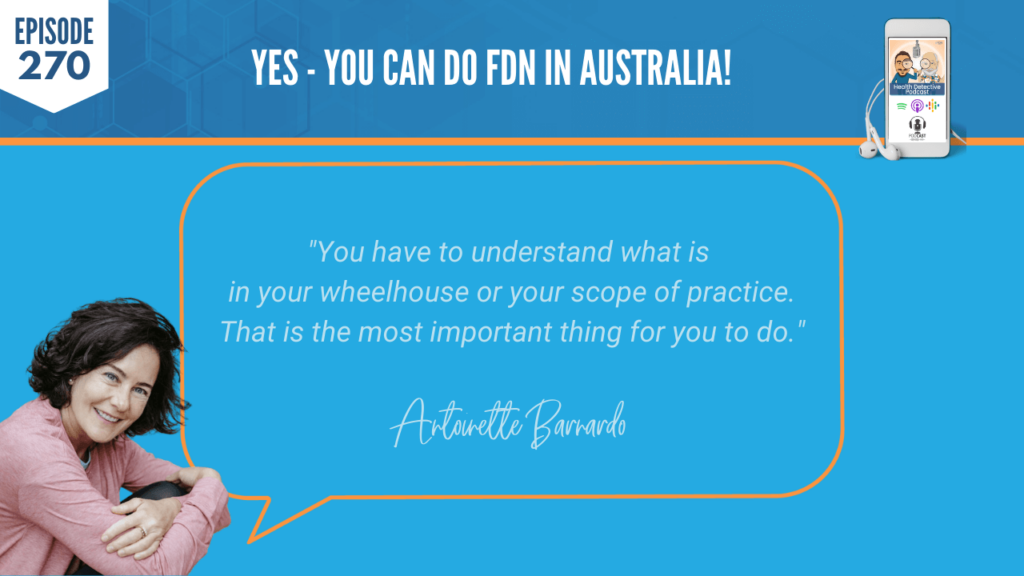
So effectively, when you qualify as an FDN, you are also a health coach. You have to understand what is in your wheelhouse or your scope of practice. That is the most important thing for you to do. If you’re an unlicensed practitioner, nothing stops you from giving recommendations, talking to your clients, and building a health program or a health coach program that is unique to you. You have to know who it is you’re targeting. Who’s your customer? What is it that you’re going to solve for them?
FDN in Australia: Client-Focused
People come to us because they say, I don’t know what’s wrong with me. Can you help me with that? Because all I want to do is, I want to get better. So often people don’t have anyone to listen to. They don’t know how to go about doing that.
And through the medical director program, an FDN practitioner can order the tests that we are taught about in our curriculum for all the months that we spend doing this. We can order our tests for our clients, and then we go through the results of those tests.
Then we make some recommendations. And those recommendations, of course, are around diet, rest, exercise, stress reduction, and then some supplementation. Now you might not be able as an unlicensed practitioner to prescribe supplements, but you can certainly recommend. You can recommend what’s good for specific nutrient deficiencies or to help you metabolize your food better or whatever it is that comes up in those clients test results.

You always correlate that with how it is they feeling. We call that in FDN, clinical correlation. No, we don’t treat papers; we really work with the person. How is this person feeling? The doctor may say that their tests are okay, but how are they really feeling?
What does that look like once we, through the medical director program, run all their tests, and then make specific recommendations? That is possible, doesn’t matter where in the world you live. There are no rules and regulations about that. And you are within your rights and means to be a health coach and with your own health building and program.
[00:13:36] Detective Ev: Very well explained and said.
FDN in Australia: First Things First
One thing people need to understand as well, I try to say this as much as I can, especially when we’re live. The founder of FDN, Reed Davis, is, technically still, he always was, but he technically still is a paralegal. So, this is a guy that knows the law better than probably the vast majority of us watching this, certainly than myself. He knows how to do these things by the books. But you really don’t need to be a paralegal. Once you understand what’s actually being done, it’s common sense how we’re able to do this properly.
So, let’s say Antoinette was my client, for example. Now hopefully, I’d be trusting her more than she’d trust me since she’s an FDN mentor, right? She probably knows more than me at this point. But let’s say she was my client. What’s happening is, we provide you guys with the terms of service agreements in the FDN course.
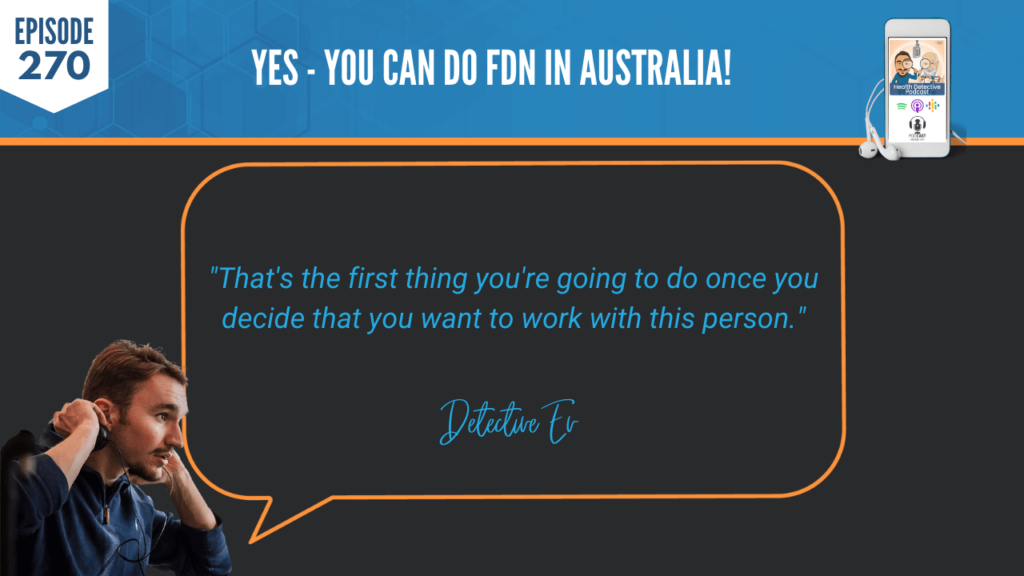
So, if Antoinette is my client, before I’m ever getting some lab tests or whatever, we’re having her sign that. That’s the first thing you’re going to do once you decide that you want to work with this person. You take payment and you have them sign the terms of service agreement.
In that terms of service agreement, this person is acknowledging that one, you’re going to facilitate a lab order for them through this medical director program that we have. So, Evan Transue didn’t order a lab. Evan Transue took Antoinette’s information, which she gave me permission to take, gave it to the doctors, they ordered the lab. And now, even though I’m in America, Antoinette’s running the test on herself.
FDN in Australia: Referral Letters
I’m not sitting in an office administering a stool sample or a urine sample or a saliva sample. Antoinette voluntarily did that herself and sent the labs back, right? And we include the shipping and all that stuff, but she sent the labs back. So, now I’m just getting the information, which was also in the terms of service agreement.
When you think about it like that, you realize, oh, okay, we’re not the ones administering a test. You’re just trusting our expertise, which is the foundation of the course. And even if someone doesn’t know what an FDN is, which the vast majority of people in many senses wouldn’t know what any health coaching certification is, that’s fine. That’s why we’re training people to know how to actually talk the talk.
Because when you have the knowledge and you can have these discussions with people, no one really gives a crap about the letters before or after your name. They want to know, can you help me, and have you helped other people like me, correct?
[00:15:41] Antoinette Barnardo: Absolutely.

And I’d like to add to that. That’s such a good point about terms of agreement and terms of services and exactly what it is you offer. Most good FDNs that I know also work with the client’s practitioners. Because when we run these tests through the medical director program, the client will have a lot of questions. We often have to provide a referral letter to their GP or their medical doctor and say, we’ve noticed some things on the test, and we’d like you to speak to your medical practitioner.
FDN in Australia: Life Jacket
We are not the enemy of the medicine world, we work with other practitioners, network, affiliate with other practitioners, particularly if we feel there’s something That looks really odd or off and it’s not within our wheelhouse. We don’t really know how to deal with this problem. We have those conversations with our clients.
[00:16:27] Detective Ev: Yeah, we’re doing something that Western medicine was never trained to do. And even if they were, they don’t have the time.
An FDN practitioner can never work with 30 clients in a day. That’s not how our work operates. Whereas a doctor, if you’re in a certain office, at least in America this is true; they have quotas. They’ve got to work with a certain amount of people in a day. They’re the opposite. So, we’re really trying to join both of these systems together so that the client can get the best results possible. That’s what we really want.
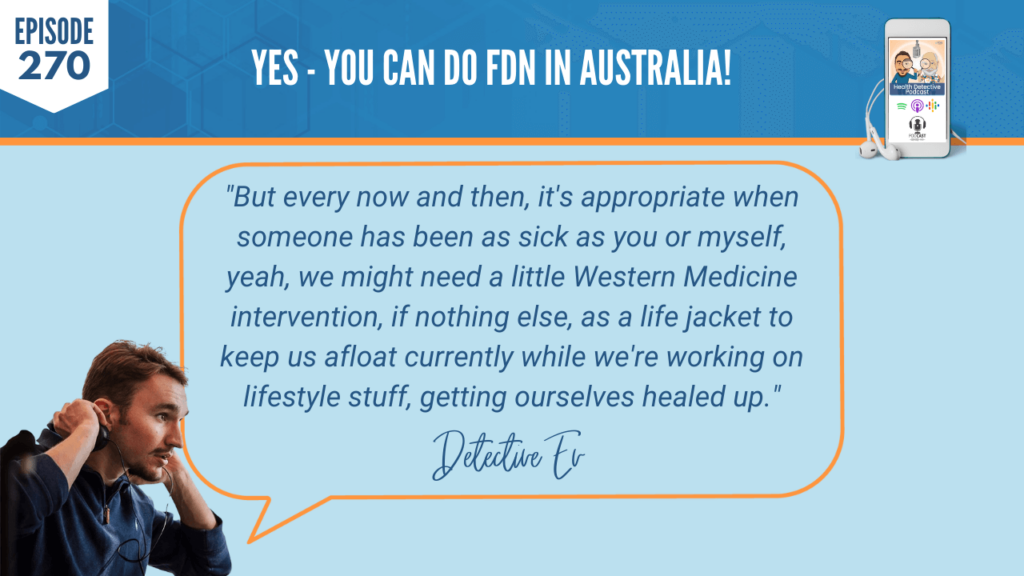
Oftentimes what the client needs is really to focus on that lifestyle stuff. But every now and then, it’s appropriate when someone has been as sick as you or myself, yeah, we might need a little Western Medicine intervention, if nothing else, as a life jacket to keep us afloat currently while we’re working on lifestyle stuff, getting ourselves healed up.
With that said, I know one of the questions that I get a lot on the course enrollment side is, are the lab tests the same for America versus Australia? Do you guys do the conversions? I actually only have a kind of surface level answer to this. I’m curious because I know the labs are a little different, we have things adjusted. But how would the Australian version of FDN differ from someone going through the course in America?
FDN in Australia: Extensive Intake
[00:17:41] Antoinette Barnardo: Okay. Great question. The labs are essentially the same. Everything that we cover in the course accommodates for the small little nuance. Most of our labs in Australia, I run through a laboratory called NutriPath, Nordic labs, with all the tests that you get in the US, whether they run by Diagnostic Solutions or some of the other big lab laboratories, they are done in Australia too.
There are certain things, for example, if we test for mucosal barrier assessment, we test a little bit differently because we use the lactulose/mannitol test as part of the test that I run through NutriPath. But we accommodate for that in the course. You don’t come out of the course saying, oh this is completely different to what I learned and what I was taught. We accommodate for that. There are small differences in the lab results.
But as Australia is growing, and I think as Australia is realizing that, as you said, Evan, on average, you’ve got seven minutes with a doctor. That doctor, in seven minutes, has to understand your lifestyle and medical history. They’ve got to understand your current symptoms and they’ve got to make a diagnosis so that you don’t end up walking out of there with a chronic illness, disease, or eventually die.

We spend a lot more time with our clients. We have intake forms, extensive intake forms. We look over those forms, get to know what the problems are, what our clients like, what they don’t like, who’s at home, who’s the support structure. We get to know our clients really intimately.
FDN in Australia: Advanced Courses
By the time we see our clients and we decide on some of the tests that we’re going to do, we have a very good handle on what it is we’re dealing with and effectively what those symptoms are, and probably at some level, what the test might actually tell us.
So, to get back to the test, the tests are the same. We run a cortisol or an adrenal state stress test, a metabolic wellness panel, mucosal barrier assessment, a GI MAP. We do it all. And of course, once you’re a qualified practitioner, and if you happen to be licensed, there are other tests that you can run.
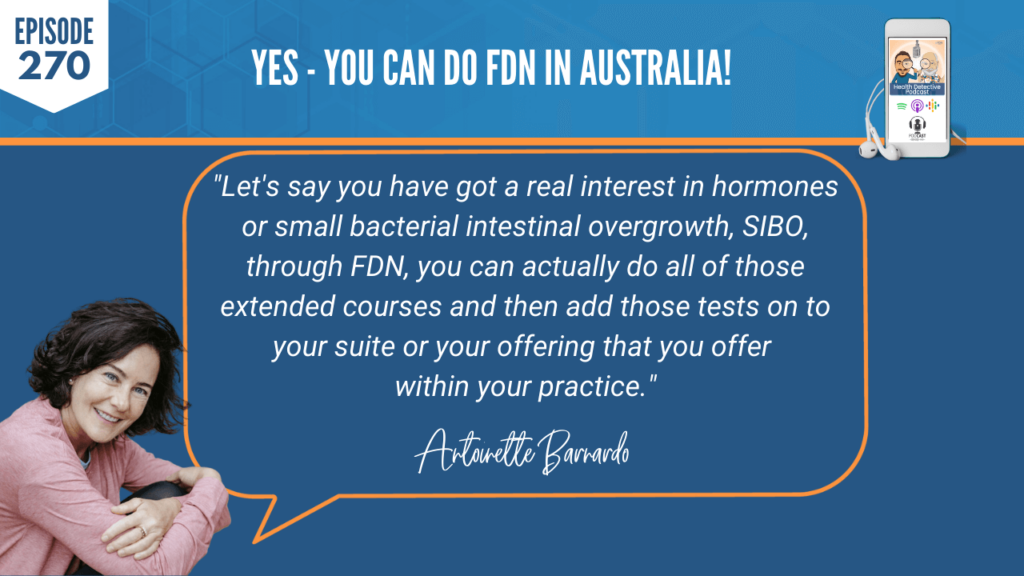
And through FDN, FDN’s got this amazing education portal. You can do some additional courses, advanced courses. Let’s say you have got a real interest in hormones or small bacterial intestinal overgrowth, SIBO, through FDN, you can actually do all of those extended courses and then add those tests on to your suite or your offering that you offer within your practice. All of those are available through the medical director program.
[00:20:19] Detective Ev: Awesome. I love that. Yeah, very easy to look at these different tests. It might not be the identical name, but it’s basically the same thing.
I also think this actually proves a bigger point too. FDN, I’ve been here for six years, not working with FDN, but I graduated over six years ago. And I’ve seen in our own course in America that some of the tests come and go. Some things shift. We used to teach in America, lactulose and mannitol challenge, and now it’s slightly different. It doesn’t really matter. It didn’t affect the outcomes for the clients.
FDN in Australia: A Different Mindset
What you start to understand is, FDN more than anything, more than the lab tests, more than the recommendations, it’s a way of thinking about health. And when you really understand that and become, I don’t mean to be cheesy, but a health detective versus a doctor versus just a health coach, anyone could be a health detective. We’re specifically training to be that though. It’s the way that you think that leads you to being outside of the box and maybe finding some unique things for clients that they would have never found.

There’s been times where, in theory, I helped a client really just get different results with Western medicine. But it’s because I was thinking differently because of what I learned at FDN that even allowed them to go ask the doctor that question. So, it’s very cool what happens here. It’s not something to get hung up with on the labs, but nonetheless, you guys basically get the same access to that stuff.
I want to ask this question correctly. I’m just asking this based on what I get from people that are constantly calling. One of the things that I hear from Australia, and I hear this from Canada as well to be fair, I know that’s not your area of expertise, but I do hear from these two countries a lot. They are very concerned with potential regulations affecting certain things, supplements or whatever.
Now, you are very much in the world of FDN. And when we were all talking together yesterday as a team planning this out, you didn’t seem to be very concerned with that at all. So, without us getting political, we’re not trying to do that in any way.
FDN in Australia: Unlicensed Practitioners
They don’t want to hear from me, I’ve never even been there. Why is someone who lives there and is an FDN mentor with a practice, why are you not concerned about things becoming more regulated or would it even affect us?
[00:22:30] Antoinette Barnardo: The legislation has been around forever as long as I can remember. Once a year, of course, the lobbyists come out and everybody throws all their toys out the cot because how dare the FDNs of this world and all these amazing organizations that come along provide certifications to people. And at the end of the day, all they’re trying to do is actually educate the public because the public is in need.
Our health systems are in dire stress. They are not, in Australia, certainly, going through a general practice or a GP can yield very few results and can often just leave you stranded a little bit like I was. Didn’t know what I needed to do or who I needed to turn to.
So, the lobbyists come out once a year, they always have been for as long as I can remember and being in this industry. They come out and try to squeeze the industry and it’s all around the fact that unlicensed practitioners are diagnosing and giving advice, which is unsolicited.
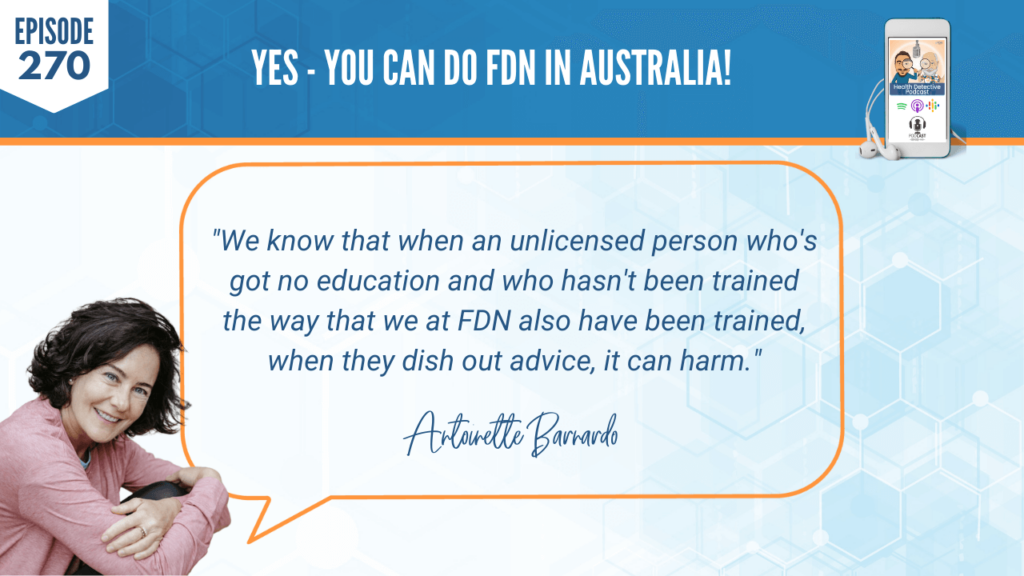
And we know that when an unlicensed person who’s got no education and who hasn’t been trained the way that we at FDN also have been trained, when they dish out advice, it can harm. Sometimes not understanding the client, not doing all the things that we said. We spend a lot of time collecting information about our clients, knowing who they are, like you said, thinking differently about the problem.
FDN in Australia: A Team Effort
And it’s not easy to be a detective. I would say it’s an absolute demand to be a detective in this industry because you have to look for everything that everybody else is missing. The medical doctors are missing them, and other practitioners and licensed practitioners can be missing them. We have to be real detectives.
So, to concern ourselves with the legislation, we only need to worry about it if you’re doing things that are unsolicited, possibly not within your scope of practice and where you could potentially harm someone with the advice that you’re giving them.
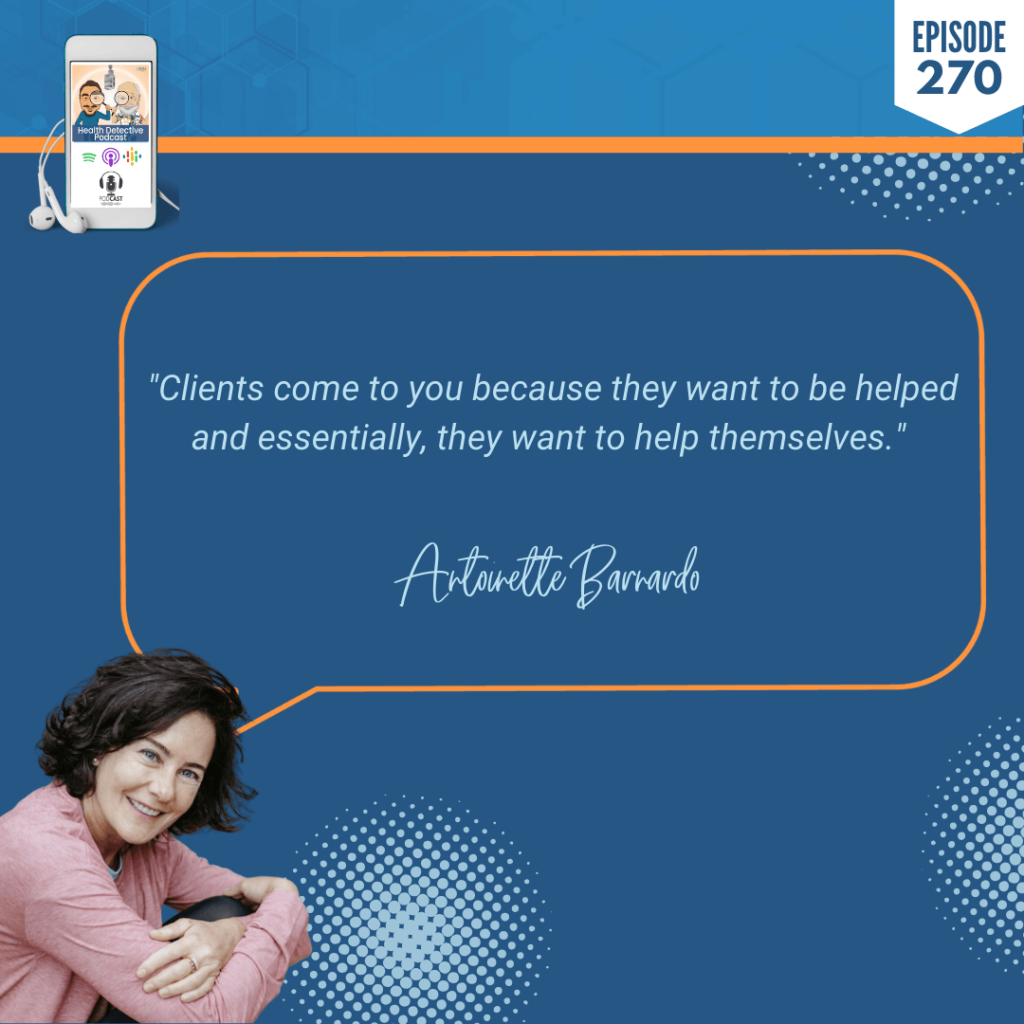
And that could be, oh you don’t need to see your doctor, as an example. No, don’t need to talk to them. That is not advice that FDNs ever give. FDNs, I can say, are very collaborative. And as we spoke at the beginning of the call, this is a self-treatment, self-opt in program. Clients come to you because they want to be helped and essentially, they want to help themselves.
What we do well is we listen to what is the problem, what are the symptoms, and then we put those detective hats on. We start thinking outside of the box, start looking outside of where things could be. As we say, we don’t deal with root causes because we don’t know if they up or downstream from the main problem. So, we start digging and we start looking.
As far as the legislation goes, it is strict in Australia. We have a regulatory body called the TGA, which is the Therapeutic Goods of Australia, just like you have the FDA. Canada does Health Canada. Europe has EFSA. China has the CFDA. So, everybody has a regulatory body.
FDN in Australia: An Ethical Practice
They all exist essentially to protect the end consumer or the customer or the patient. We respect that they’re there. They do amazing work in terms of legalities, making sure that the right things land in the right hands.
But what they are is they are also concerned, and they obviously have big organizations lobbying them donating money. It’s the corporate world. So, they obviously have a lot of pressure in terms of providing services to licensed practitioners, and that is their focus.
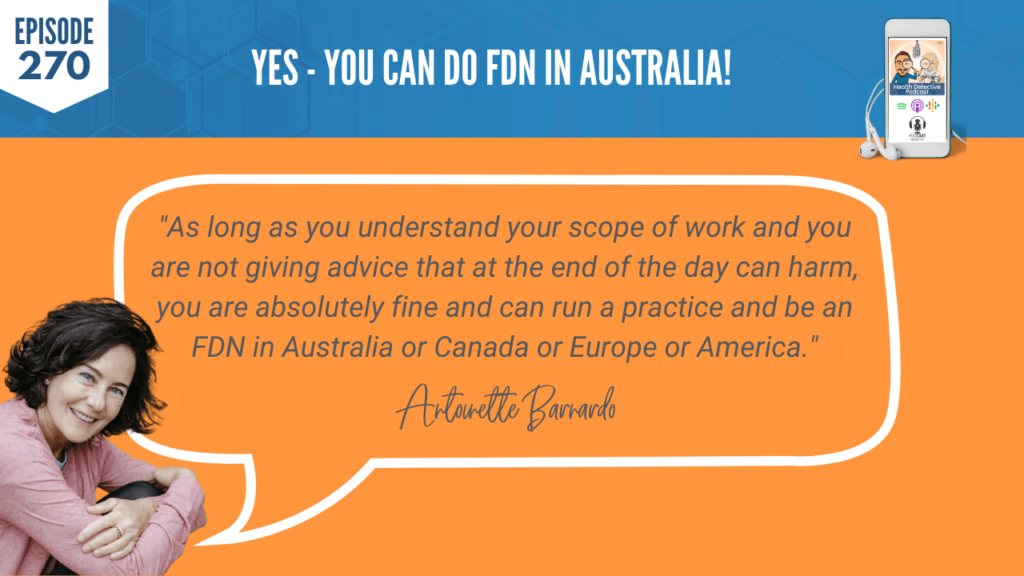
But I want to come back to what I said in the beginning of this call. Anybody can become a health coach. As long as you understand your scope of work and you are not giving advice that at the end of the day can harm, you are absolutely fine and can run a practice and be an FDN in Australia or Canada or Europe or America.
[00:26:27] Detective Ev: Bam. I was joking, by the way, when you mentioned the Chinese version of the FDA. I was like, oh my gosh, because I think about how bad our FDA sucks here. Then I’m like, I can’t even imagine what theirs is like.
But what I really loved about your answer, jokes aside, is that I appreciate the objectivity with it. And this is something I constantly bring up on our podcast because I really do believe it. When people get into this world of functional health care and natural medicine, not always but they often become just as dogmatic as the Western medicine people, and they don’t even realize it. They left Western because of the dogma, and then they start doing it over here. Now we hate the FDA, and we hate everything. No, I don’t literally hate the FDA.
FDN in Australia: A Grace-Filled Practice
None of these organizations were created with the intention of, oh, let’s see how evil we can be and destroy people. That’s not what these people woke up and decided to do.
What you brought up, which I thought was brilliant, is the fact that there is money involved, there is lobbying. And for all of us that are watching this, you probably have had a health issue. Antoinette already shared, she did as well. So did I. It was the health issues that we experienced and then the failing of the Western medicine system, through no fault of the practitioners, right? But the failing of that system to heal us led us to thinking outside the box.
So, if you’re the average worker in the FDA or the system out there or the system in China, and you’ve never had this experience that all of us have had that led us to thinking outside the box, and then there’s a bunch of money coming at you every single day saying you need to promote this because these people are hurting others talking about us, of course you’re going to buy into that. You probably genuinely believe that.

I’m not saying that I’m offering a solution in this moment. But what we need to do is think, be calm, give people grace and realize that they’re generally making the best decisions that they can with the information that they’ve been given. So, I think how you explain that is perfect.
I wanted to mention this because you talked about multiple times now, we’re not diagnosing anything. And I know that this is a question that comes up often, regardless of the country.
FDN in Australia: A Holistic Practice
They say you’re called Functional Diagnostic Nutrition, diagnosing is in the name, right? Can we break down how is an actual diagnosis different from what we’re doing with the lab testing because it’s not just a play on words, it really is different.
[00:28:37] Antoinette Barnardo: With pleasure. Absolutely, and it’s a great pickup. We run diagnostic tests and that’s why functional diagnostics is in our name.
The diagnostic tests that we provide that a client comes to us – I’ve got a health issue, they want to resolve it. It’s one of the amazing ways for us to say, okay, let’s run some diagnostic tests so that we can all be on the same page. We can see what’s going on with the gut, with your stress levels, with your liver. So, we can just have a view of what is going on.
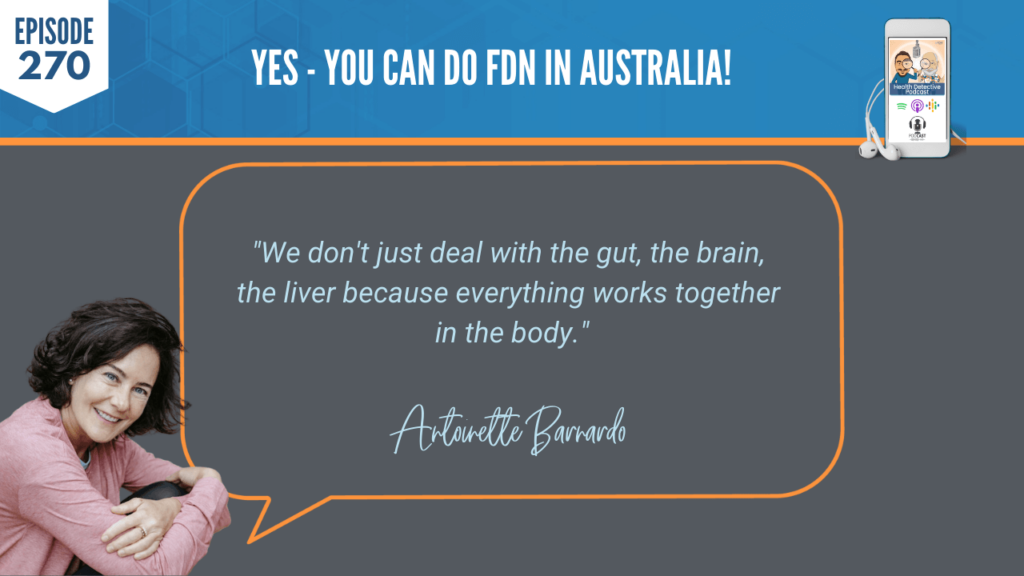
And then obviously functional, for me as a practitioner, means holistic. It’s the whole person. We don’t just deal with the gut, the brain, the liver because everything works together in the body. It’s a functional body that we’re dealing with, a functional human being, and also a biochemical individual. Everybody’s not the same.
That is probably also why Western medicine is failing us because you’ve got to unfortunately treat everybody the same. They fall into the middle, doesn’t matter whether they sick or young or healthy or old. That’s why when you go see your doctor most likely he’s going to tell you that the test results say you’re okay because you’re somewhere average in the middle. They don’t treat you as the bio chemically individual that you are.
FDN in Australia: The Magic in the Middle
Through the medical director program, we run our diagnostic tests. Those give us a very good window in what’s going on with a customer. Then what we do is we correlate the results that we see with the symptoms that someone is experiencing. Because some of those markers that we test might actually also look in range or normal according to FDN. So, we actually have a look at that.
We say, okay, that’s where we’re at, but now let’s work with this client in terms of how it is they’re feeling. How are you feeling waking up every day? How are you functioning every day? If someone says to you my markers are looking okay, but I cannot get out of bed, that is a real challenge for us. So, after we’ve done that, we understand what the symptoms are.

Then what we do is we use this amazing program called DRESS, which stands, by now everybody would know, for diet, rest, exercise, stress reduction, and supplementation. And that’s what I, in my practice and in my life and in my business, call the magic in the middle. That is also where the magic happens.
Because diagnostic tests cannot solve the problem. They give us insight. And on the other side, anybody can go off and go buy a supplement. We’ve got Dr. Google and we’ve got everybody out there, the likes of Amazon, everybody, supplement industry is a billion-dollar industry. Everybody’s using them. They’re not going away in spite of the lobbyists and everybody that’s trying to make them go away and regulate them. But the thing is, people are looking for answers and solutions. So, for us, it’s the magic sauce in the middle.
FDN in Australia: An Educational Practice
The hardest thing for people is to hear, sometimes, that they need to change their lifestyles, that they need to change habits, behaviors, they need to make different choices. And that’s where we as FDNs work with them. And we work really hard.
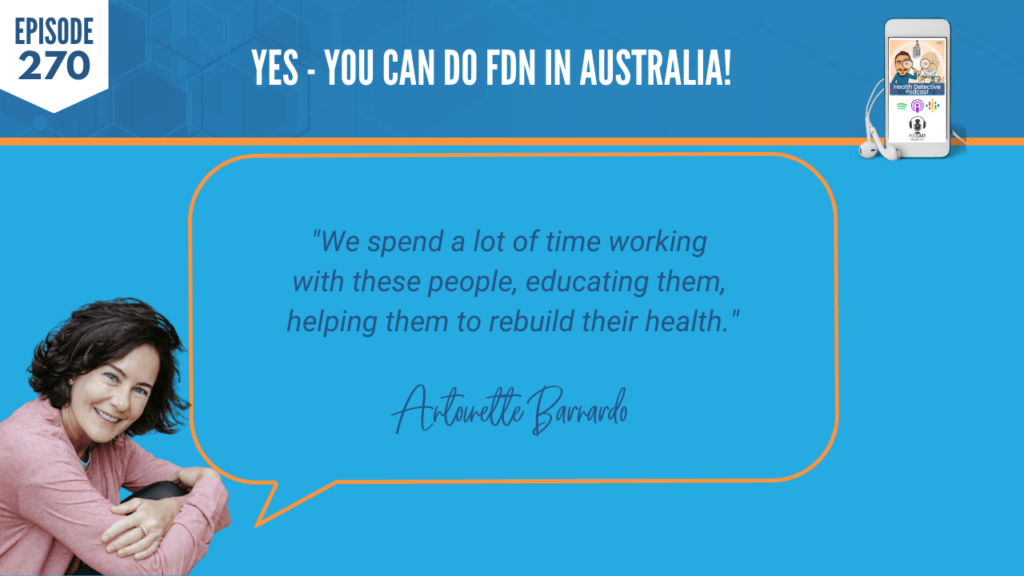
Our programs are not, oh, you only come see me once and here’s a script and off you go. I actually intimately work with clients for three to six to nine months. That is a long time. No medical doctor, most other practitioners, don’t work with you that long. But in FDN, we do. We spend a lot of time working with these people, educating them, helping them to rebuild their health.
I’m not sure I answered your question. Did I, from a diagnostic perspective?
[00:32:20] Detective Ev: You’ve answered every question and gave me a lot more. I loved it. I love the passion. I love the energy. Because again, we really haven’t gotten to interact much. And it’s not atypical for someone to have that passion here, but it’s just cool to meet another person that’s this fired up about it and fighting the good fight.
One question I wanted to just ask as a final one on my end, at least, Antoinette, we discussed how we could do this, we discussed why people shouldn’t be worried about any regulations. They’ve already been there, they’ve existed forever, right? We still have people doing FDN, it’s totally fine. It’s just making sure that you’re staying within your scope, which we teach you guys.
Jo said she loves the magic in the middle. Love that phrase. So, that’s great.
FDN in Australia: A Congested System
What I wanted to ask, though, is I’m in America, the need for something like FDN is obvious to me. I walk around and see the issues with western medicine, all these people with autoimmune conditions, all these people with skin conditions, depression, mental health. It’s terrible. And I assume probably Australia is not too dissimilar in this way.
But for someone watching this that maybe thinks this happens all the time, believe it or not, on the calls, they almost think that there’s not enough people out there that need this type of stuff. From someone who’s actually done this work and sees a bunch of people and you’re viewing life now through this FDN lens, what percentage of Australians would you say actually need this type of help and would benefit from like an FDN program? And I know everyone would but let’s be realistic. How many people actually need something like this to change their life?
[00:33:42] Antoinette Barnardo: The need in Australia is great. Evan, like I said to you, the medical system is broken. It’s too heavy, it’s congested.

After COVID people are struggling with their health. In fact, I can tell you that Australia is just about to pass some legislation where now, instead of going to a GP or medical doctor, they are awarding you a one-hour consultation with a naturopath in lieu of your doctor’s appointment because people cannot get to their doctors, they cannot get help. So, it’s hard to put a number to say how many Australians really need this.
FDN in Australia: A Needed Practice
But I can tell you in my circle of friends, everybody I meet, everybody I talk to, when I meet with them and tell them what I do, I haven’t had anybody who’s walked away from me that has not said, oh, I need to talk to you. I really need this. Oh, my goodness, if I don’t need it, my husband does. Or you know what? I have a family member, or I know people in my school, and I just have a whole bunch of people that need to talk to you. So, I would say the need is great. Furthermore, the need is increasing.
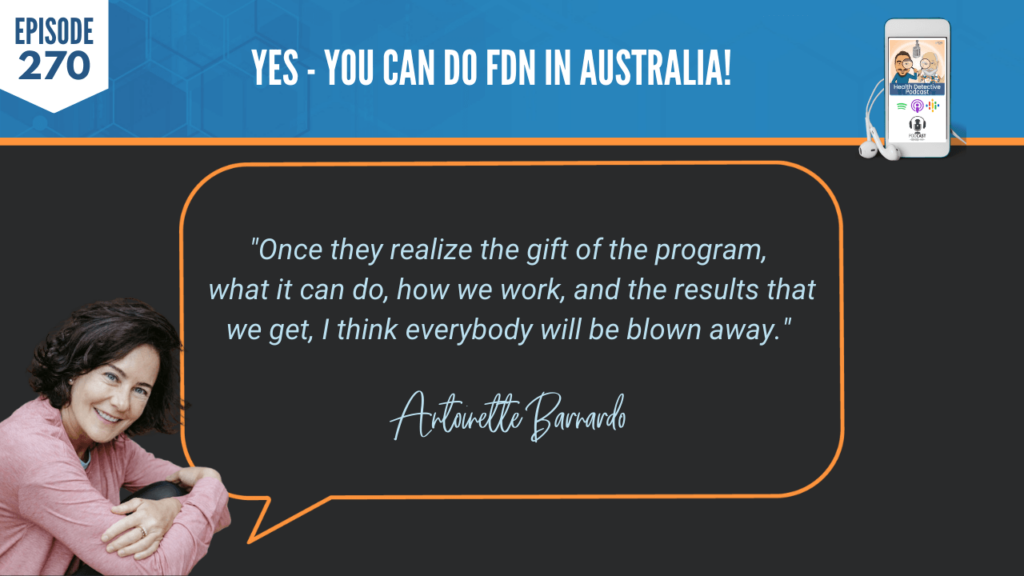
What we need to do in Australia is we need all of you people out there in Australia to build a network. We need to build a family of FDNs because we need more practitioners, more medical doctors, everybody to come into the fold. Once they realize the gift of the program, what it can do, how we work, and the results that we get, I think everybody will be blown away.
So, I can’t really put a number to it, but I can tell you that everybody I come into contact with, total strangers. And I hate to say that every one of my social conversations when I go out is about FDN because it’s not. But by default, it happens that way because everybody has got a need. They’re either stressed, unwell, dealing with something, and they don’t know who to talk to.
So, I would say we have a great need for FDN. I’d love to see us grow FDN down under. I think there’s a lot that we can do for Australians.
FDN in Australia: A Stress, Hormone, & Perimenopause Workshop
[00:35:51] Detective Ev: Amazing.
Antoinette, again, thank you so much for coming on today. I want to finish with this. Speaking of Australia, one of the things that we have coming up just next week – Monday, September 25th at 5 PM EST. There’s going to be a replay, we promise. But what time is it for Australians?
[00:36:15] Antoinette Barnardo: 7 am, which is very doable. If I can get up at 4:30 am, you all can come on to this at 7:00 am Sydney time.

[00:36:25] Detective Ev: It’s going to be a hormone workshop specifically focused around perimenopause symptoms and how to help your clients thrive or even you deal with these types of things. It’s a wonderful introduction to the FDN system and how we’re operating.
We wanted to create a presentation time specifically for Australia because so many people tried to tune in with us last time we did a workshop despite the crazy times they had to be awake. So, we wanted it to be a little less crazy. We don’t want to do a stress and hormones workshop that stresses out your hormones. That doesn’t sound like a good idea.
I do have a link. It’s going to be FDNTraining.com/perimenopause-sep25. If you can’t figure it out, if you go to the link and your computer explodes, then get your computer fixed first. But after that, you can DM us on Instagram, or you can book a call with one of the advisors, email us.
We have everything on functionaldiagnosticnutrition.com for you to contact us and we can make sure you get a ticket to that workshop on September 25th. We’d love to get to see you guys.
Antoinette, any final words of wisdom? I really appreciate this again.
Conclusion
[00:37:27] Antoinette Barnardo: No, I would say if anybody’s tuning in and listening, please come and join us. Please come and join the FDN family.
We also have a Facebook page down in Australia. It’s the FDNP Australia and New Zealand Facebook page. Please come and join us. Start interacting with us. It’s the best way to understand what you can, cannot do, how it works, and who we are. We’re a great bunch of practitioners and we’d love to talk to everybody else.
[00:37:58] Detective Ev: Amazing. All right.
We actually have a team with us here today. They actually said we can drop the word “perimenopause” to get the details. If you are not watching live, you can still drop that word “perimenopause”. We’ll have people check it out. Don’t worry, as long as you drop it before September 25th, we’ll get you in.
Antoinette, I hope you have a fantastic rest of your day. I am approaching nighttime here. Very fun working with you.
[00:38:20] Antoinette Barnardo: Thank you. Have a wonderful night. And great to see everyone. Thank you, Evan.
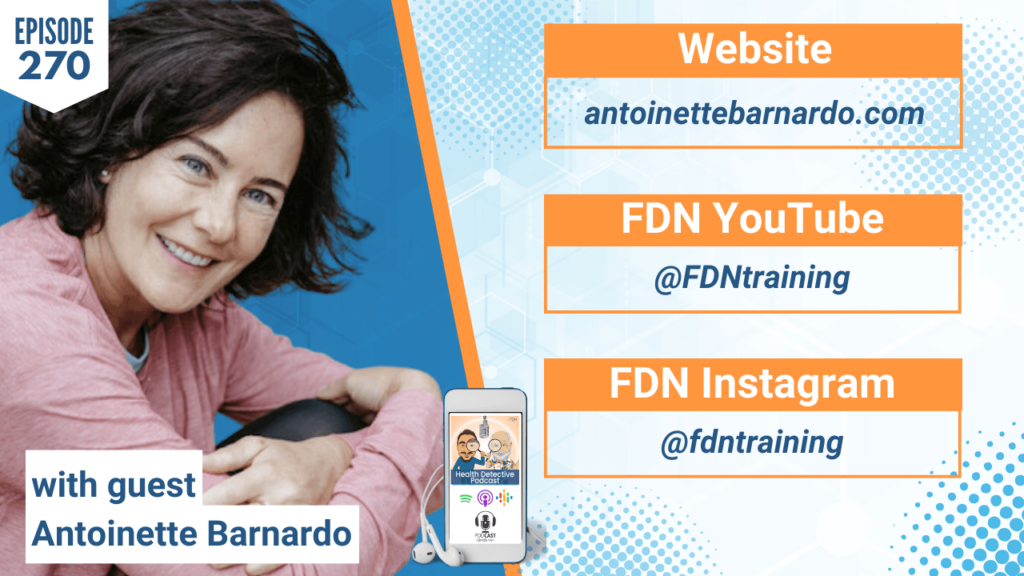
You can always visit us at functionaldiagnosticnutrition.com, on YouTube @FDNtraining, on Instagram @fdntraining, or on Facebook @FunctionalDiagnosticNutrition.
For more informational and functional health-oriented podcasts like this one, go to functionaldiagnosticnutrition.com/health-detective-podcast/.
To learn more about us, go to functionaldiagnosticnutrition.com/about-fdn-functional-testing/.

